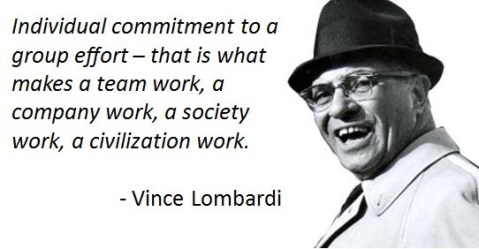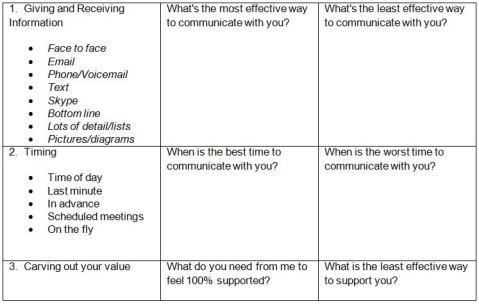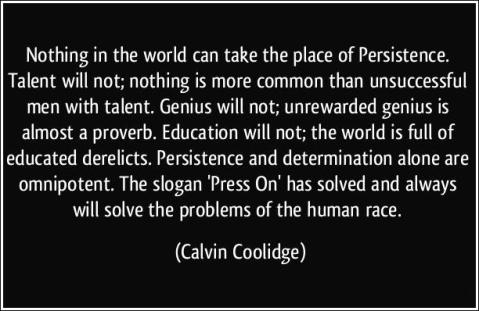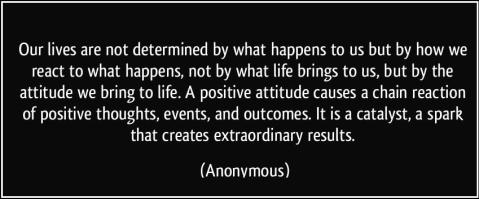The Employee’s Guide for Surviving a Merger & Acquisition (Revisited)

“I wondered if I would lose my job despite what we were told. We all know when mergers happen there are overlaps, or for other reasons you can get pushed out,” he said.
From MSNBC Careers article “How to survive and thrive after an acquisition” by Eve Tahmincioglu
Back in 2012 when I wrote about the then recent announcement that Kellogg was buying Pringles, I focused on what an acquisition meant to employees on both sides of the transaction fence.
With today’s announcement that two iconic brands – Kraft and Heinz – were merging in a deal that was being backed by Warren Buffet and 3G Capital, I felt that it would be important to once again revisit the implications for employees beyond the headlines.
As highlighted in the above referenced article excerpt, the initial reaction is usually one of fear and trepidation centered on whether you will lose their job by becoming an expendable redundancy as a result of the newer, merged company.
There are of course no shortages of well intentioned articles highlighting the top 3, 5, 7 or for that matter a pick of any number of steps to securing your future in a changing corporate reality. However, the fact remains that job security is something that you build long before an M&A occurs by demonstrating your value to your company in a tangible and meaningful way.
Before terms such as personal brand entered the mainstream lexicon of business speak, who you were and what you provided was reflected in comments such as “you know that Joe is a hard worker, and you can depend on him to be there when you need him!” In essence, and even though you didn’t call it personal branding way back when, that is what you were doing . . . building your brand based upon how those around you perceived your contributions in the workplace.
Think of a runner who shows up at the starting line of a race without having trained in the months and years leading up to the competition. They will have a limited chance of winning. Unfortunately, far too many employees do not think about how their “brand” is perceived by co-workers as well as management until after an M&A is announced. It seems that the only time we ask ourselves these hard questions is when we feel that our job is at risk.
So the short answer to the question “how do I survive an M&A” is to be both conscientious and proactive from day one when you start your new job.
Be outgoing in meeting and engaging with your co-workers and senior management. It’s all about your ability to build and sustain rapport.
Undertake assigned tasks with both energy, passion and enthusiasm. Remember that similar to relationships, there are going to be good days and challenging ones as well, so think in terms of running a marathon as opposed to a sprint.
Over time, you will create an enviable brand that if and when an M&A occurs, you will be well positioned to make the leap to a new, collaborative environment. I call this “fireproofing” your bigger future.
When and if a merger does occur, don’t sit in the background quietly waiting to be noticed. Your performance alone will not speak for you.
As the protagonist in the Tahminicioglu article confirms, you have to be “proactive after the merger, researching the new owners, networking with managers and putting in extra hours.” In short “you have to reach out and pursue opportunities.”
This is also good advice for those who may not have made the necessary and prudent investment relative to building their brand pre-M&A days.
While you can’t go back in time and un-ring the bell so to speak, you can view an M&A as a new beginning, a mulligan to those of you who might be golf enthusiasts, to get it right the second time around.
All in all, there is no doubt that the pending changes associated with a Merger and Acquisition can be daunting. However, you do not have to get swept away by a wave of fear. Instead look at it as an opportunity as opposed to an unwelcome change, and chances are you will come out on the other side with both feet firmly and securely planted within the new enterprise.
Adopting this mindset will showcase your ability to demonstrate courage and adaptability, a critical leadership trait essential in today’s uncertain marketplace.
30
Do you know what to do during a major corporate shake-up?
My guide How To Make 2015 Your Breakout Year will not only help you to recognize the common obstacles that befall all of us, it will also enable you to take action within the framework of your own unique gifts and abilities to make this year your most successful ever.
What Having A Seat At The Table Really Means

Most everyone is undoubtedly familiar with the term “having a seat at the table.”
Often reserved for those who are considered to have both the influence and power to make decisions and effect change, the table has become a symbol of power, negotiation and credibility through which one can forward their career, generate a sale or plot a course for enterprise success.
In other words, when one is provided with a seat at the table, it represents an opportunity to be heard and to make a difference.
But there is much more behind coming to the table than simply taking a seat.
In my upcoming eNewsletter, I will be providing practical tips in terms of strategizing your “table-time” outcome, as well as being mindful of where to sit and why. Call it boardroom etiquette, presentation technique or strategic positioning, I am sure that you will find the tips useful.
However, and in putting together the newsletter, I came across something that was very interesting – especially in terms of the information you share from your seat at the table.
“The hardest thing about B2B selling today is that customers don’t need you the way they used to.” – Brent Adamson, Matthew Dixon and Nicholas Toman in Harvard Business Review (July 2012)
In his review of the HBR article, Marc Bergen wrote “sales reps would take the time to discover a customer’s needs and sell them the solutions to those needs,” and that this approach “worked for a long time.”
WHAT YOU KNOW IS JUST A CLICK AWAY FOR YOUR CUSTOMER
Bergen then goes on to say that today, things are much different, as “almost everything that a customer needs to know about solving her perceived problem is just a click away.”
Think about this last point for a moment.
You are in a meeting in the boardroom. You are “at the table.” Whether you are selling a product or service, or championing a new strategy internally, unlike in the past, the people whom you are addressing are likely to be as knowledgeable about the subject matter as you are. This means that merely sharing information is not enough. You have to add value to it.
1. Know what they don’t know
You have to tell them more than the words they have already read through the click of a mouse. Beyond content, I am talking context. What is it that you, and only you, can add to what is already out there and known.
This is the first rule of being effective at the table . . . assume everyone already knows what you know, and then find a way to not only deliver new insights, but new perspectives on existing knowledge. This is adding value.
What are other ways to add value from your seat at the table?
2. Become A Conversation Encourager
Besides the knowledge that you bring to the table, listen and observe what others are saying and doing, and don’t be afraid to challenge ideas or have your ideas challenged.
In other words, facilitate a dialogue that encourages the free flow of information. The more information that is shared, the better positioned you will be to make a meaningful contribution.
This of course does not mean that you take over the meeting. What it means is that you become an active participant who, instead of monopolizing the discussion with your own monologue, you also encourage others to have a voice.
If there is a lull in the discussion, ask a question or make a leading statement. The key is to avoid the bobble head syndrome where everyone in silent acquiescence nods in seeming agreement with everything that is being said.
It is in scenarios such as these that you will likely find the origins of the lament “when everything is said and done, there is more said than done.” Or to put it another way, don’t get trapped by a route of least resistance assumption in which you interpret minimal dialogue to mean acceptance or buy-in.
3. Face Time Is At A Premium – Seek Clear Cut Feedback
Don’t assume anything. This is a good rule of thumb in all situations both in and out of the boardroom.
However, and unlike everyday exchanges and interactions, when you have a seat at the table, there is the expectation of achieving a tangible outcome, as well as understanding upon what said outcome is based.
If for example, a definitive course of action hasn’t been established, determine what additional information is needed, and what will happen after said information has been provided.
If the answer to your idea is no, it is better to know about it then, than leave thinking that it might still be on the table.
Remember, face time – especially in this world of virtual communication – is at a premium, so make it count by seeking clear cut feedback.
Tips:
- Come prepared with thought provoking questions
- Be seen as an information broker – share statistics, competitor strategies or research not yet publicized
- Speak up early in the meeting to make yourself present
- Ditch your i-phone, android or i-pad.
- Own your space at the table
Once again, in my upcoming eNewsletter, I will provide you with tips regarding board room protocol and techniques for best presenting your ideas i.e. find an opportunity to write something on the smart board or flip chart and remain standing for as long as you can.
Like proper dress or table manners at a business lunch, these are important because you want people to see and hear you beyond surface distractions, and in the best light. The purpose of today’s post is to make sure that when they are watching and listening to you from your seat at the table, you have something meaningful to say.
Subscribe to my FREE Monthly eNewsletter through the following link:http://usheroff.com/newsletter/
30
When setting goals, is time on your side?

“You must never confuse faith that you will prevail in the end – which you can never afford to lose – with the discipline to confront the most brutal facts of your current reality, whatever they might be.” – Admiral Jim Stockdale
We are all probably familiar with the above excerpt from Jim Collins’ book Good To Great when, in the chapter titled “Confront the brutal facts,” he shares with us the compelling story of Admiral Jim Stockdale.
Stockdale, who was the highest ranking U.S. officer to be held prisoner in the notorious Hanoi Hilton during the Vietnam war, talked about the fact that those who did not make it out of that harrowing situation were the optimists.
The reason he gave is that they kept setting times for their hoped for release. When said times repeatedly came and went without their being freed, they eventually lost all hope and gave up on life.
Even though we may not, in setting our career goals, be facing the actual life or death situation that Stockdale and his fellow prisoners had faced, the same principle that saw the Admiral persevere and overcome is still very much relevant to our own dreams and aspirations.
In other words, your focus should not be on self-imposed time limits such as by the age of 30 I want earn X amount of dollars, or by 45 I want to be CEO. This is because there are always going to be circumstances beyond your control that can impose unexpected delays or a change in course.
This doesn’t mean that you should not set goals. What it does mean is that in setting goals you are aware of time, not driven by it.
What About Deadlines?
Now some of you might be thinking “that’s easy for Roz to say,” as she probably doesn’t have a boss who has given her a task that must be completed by a specific date.
As someone who has written many books and dealt with publishers and editors, I do understand deadlines. Especially the line drawn in the sand kind of expectations in which there is little if any flexibility.
However, this doesn’t change the applicability of Stockdale’s advice. Specifically, that while facing or acknowledging the “brutal fact” that you have a cast in stone deadline, you do not lose faith in your ability to deliver. This last point is the key!
If you make your assigned task about meeting a deadline, then you make time your enemy in that you will lose focus on what you need to do to be successful.
Think about Tom Brady of the New England Patriots.
As much as any other quarterback in NFL history, he has led his team from defeat to victory in the final two minutes of countless games.
While being aware of the clock, Brady did not focus on the time he had but, what he needed to do to drive his team down the field to score the winning points.
It was both his focus, and the faith that he would prevail, that enabled him to get the job done.
Urgency Is Not The Same As Desperation
In your everyday business life, you need to possess a sense of urgency as opposed to desperation.
With desperation, time becomes your enemy as opposed to your ally.
When you however pursue your goals and dreams with a sense of urgency, it drives you to focus on the individual steps and tasks that you must complete to get to where you want to go. Or to put it another way when you, with diligence and integrity, work towards achieving your goals, time is on your side.
Even though you might not attain the desired success within the time frame you had originally hoped, like Admiral Stockdale you will get there, and it will be no less satisfying.
Do you know the difference between the fear of success and the fear of failure?
My guide How To Make 2015 Your Breakout Year will not only help you to recognize the common obstacles that befall all of us, it will also enable you to take action within the framework of your own unique gifts and abilities to make this year your most successful ever.
30
Trapped in a bad boss – employee relationship?

“Experiencing a toxic boss (female) at the moment, complete nightmare. I went on medical leave 4 months after starting a new job and when I returned I was given 2 work options. I picked the small project option. She has set out to sabotage it for the entire 8 months I have been working on it. Have been looking for another job within the same company for that entire 8 months…so far no luck.” – JC from Is your boss trying to sabotage your career . . . and what you can do about it!
Have you ever had to deal with a difficult relationship? It is to be certain not easy.
However, a difficult relationship becomes even more trying when it happens to be with your boss. Especially if like most people, you are dependent upon your job to pay the bills and keep a roof over your head.
As a result, you likely feel trapped and powerless.
In such a situation, work life becomes an exercise in endurance as opposed to being a rewarding and productive experience.
The question then becomes; what can I do about it?
“The lesson I learned was if your boss hates you, get out.” – RMS from Is your boss trying to sabotage your career . . . and what you can do about it!
Do I have to quit, suffer in silence or do I speak up and risk getting fired?
In today’s post I will zero in on the 5 key steps that will empower you to take back the reigns of your career aspirations, whatever they may be (and wherever they may lead).
1. Determine If You Are The Only One
While you do not want be seen as inciting rebellious behavior among co-workers or against the corporate culture, you’re probably not alone in your experiences in dealing with a difficult boss – employee relationship. In this regard, it’s important to seek feedback from fellow employees whom you trust (emphasis on the word trust), to confirm if the strain in your relationship with your boss is limited to an isolated personality conflict, or an overall management style.
A cautionary note, while it is important to seek meaningful feedback, you do not want to become a charter member of the “I hate the boss” movement. Getting caught in a commiserators club, will actually trap you more as opposed to setting you on the path to freedom.
2. Know With Whom You Are Dealing
If there appears to be a pattern of behavior on the part of your boss that extends to his or her relationship with other employees, then the next step would be to try and understand why they are compelled to act in such a manner.
There are some bosses who truly do not know that their behavior is problematic (The Reasonable Toxic Boss), or believe that this is in fact the most effective way to lead or manage people (The Rational Toxic Boss).
Regardless of the personality type, gaining this much needed perspective will help you to determine the next course of action you can take to resolve relationship issues with your boss.
3. Plan Your Approach
Based on feedback from your fellow employees, you have determined that it is not you, but the boss who is mostly responsible for the disconnect.
You have also identified your boss’ personality type, by the manner in which they deal with others.
You are now ready to approach your boss in terms of attempting to have a meaningful and productive dialogue.
For example, with the Rational Toxic Boss, a conciliatory approach in which you seek his or her guidance on helping to improve relations makes the most sense. With the Reasonable Toxic Boss, merely creating constructive awareness may be the ticket to better days ahead.
The key point to remember at this point, is that like most people, your boss likely has their good traits as well as less than desirable traits. None of us are perfect. Don’t approach them from a position of anger or frustration, but one that is firm, respectful and conciliatory.
By taking this approach, their reaction may surprise you.
4. Managing The Aftermath
Depending on how the discussion goes, you should schedule regular meetings with your boss in an effort to ensure that you are helping them to achieve their objectives or goals.
Establishing a consistent line of communication will enable you to build a rapport through which both you and your boss can derive the greatest benefits.
5. No Matter What The Outcome . . .
Finally, and no matter what happens, “never” as Mark Twain so aptly put it “argue with stupid people,” as “they will drag you down to their level and then beat you with experience.”
Always be both professional and courteous in your interactions with your boss no matter how unreasonable they may become. This rationale will help you to best showcase your true character as well as speak volumes to those watching, as you never know through whom your next opportunity may come.
Besides, conducting yourself is such a manner will both empower you as well as restore a sense of control over your life.
In conclusion, manage your attitude on a daily basis. How you view challenging situations will determine the outcomes you create, whether consciously or unconsciously.
To quote Sid Ridgley, a pragmatic strategist, how you see the world, how you handle stress and how you manage relationships are all linked to your thinking patterns. You don’t have to change who you are but you must be flexible in communicating with all types of people. Your ability to think differently will help you to identify solutions that can weather the storm with challenging bosses.
In this context, I would like to leave you with the following saying that has, over the years, become increasingly meaningful to me.
You sow a thought and reap an act.
You sow an act and reap a habit.
You sow a habit and reap a character.
You sow a character and reap your destiny.
Do you know the difference between the fear of success and the fear of failure?
My guide How To Make 2015 Your Breakout Year will not only help you to recognize the common obstacles that befall all of us, it will also enable you to take action within the framework of your own unique gifts and abilities to make this year your most successful ever.
30
Four Steps For Overcoming Disappointment

During an interview a few days after a heartbreaking loss at this year’s Super Bowl, Seattle coach Pete Carroll admitted that he awoke in the middle of the night and just wept.
It was a memorable moment in a week of memorable moments, for many reasons.
Besides the admission by a coach from the rough and tumble testosterone-filled world of professional football that he had been brought to tears by the setback, one cannot help but wonder about the long-term effect on a championship dynasty if not derailed, then at least delayed.
Of course the determining factor as to whether or not it is delayed as opposed to being derailed is dependent upon how the team and coaching staff both individually, as well as collectively, react.
When you consider the initial response to what was a huge disappointment on a monumental level, you might be inclined to lean towards the latter. Especially given that many players immediately following the defeat, questioned the coach’s play calling, while one coach was openly critical of player execution.
This is why Step 1 in the 4 steps for overcoming disappointment is so critical.
1. Look Beyond The Immediate Moment
Winston Churchill once said that “success is not final” and “failure is not fatal,” but it is the “courage to continue” that really counts.
While having the courage to go on is without a doubt an attribute, it is the attitude by which you continue that determines future success.
Churchill’s “not final-not fatal” perspective, speaks to the importance of looking beyond the immediate moment, regardless of whether it is in the bright afterglow of victory or the agony of defeat.
The fact is that even in victory it is important not to let a moment of success define you, because it is in this place of contentment with one’s achievement, that apathy and a loss of motivation can occur.
Instead, you must use the experience to continue to build towards even greater accomplishments.
The same goes for failure.
In much the same way you should use victory as a springboard for future success, so too must you use a setback as a means to achieve a desired outcome.
Ironically, some believe that it is easier to overcome past disappointments than past successes.
Referencing the world of professional sports such as football, this is perhaps one of the reasons why repeat champions are a rarity. Much has been written about the many championship teams who have failed to even qualify for the playoffs let alone successfully defend their title the year following their big win.
Regardless of one scenario being easier to overcome than the other, one thing is certain . . . having the right attitude is the key.
In this context, the words of Seahawks’ coach Carroll speaks directly to this point when he said; “One moment does not define you; the journey does.”
2. Accept That Some Things Are Out Of Your Control
The wisdom behind recognizing the difference between what you can and cannot change is important.
Sometimes in your life and career, you will do everything that is technically right, but not get the expected result.
To the majority of football fans, Carroll’s decision to throw the ball on the doorstep of the opposing team’s goal line was unfathomable. But for those who profess to truly understand the game, it was a smart decision that should have, but did not, work out.
There is no doubt that the coach’s call will forever be debated by everyone who follows professional football. This being said, one thing that everyone can agree upon is that the defending player who intercepted the ball made an amazing play.
This of course is the unknown variable that turned what appeared to be certain victory into a crushing defeat.
No one could have anticipated the chain of events that led up to that fateful moment, when a little known first year player was, at the last minute, sent on the field to defend. He made the play that would catapult him onto the front pages of newspapers around the world, and into gridiron folklore.
There were of course other contributing factors at work that in one brief moment, conspired to turn the sports world on its ear. If any one of these were removed from the equation – such as the New England coach calling a time out instead of letting the clock run down, there would have likely been a much different outcome.
Once again, contemplating things that never were in an effort to understand what did or did not happen, is an exercise futility. Accept that there will always be factors that are beyond your control, and that all you can do is bring your best whether to the playing field or the boardroom.
3. Know When To Let Go Of the Past
Amid all of the controversy of what some have referred to as being the worst play call in football history, Pete Carroll’s words regarding the importance of the journey, demonstrate that there is an intention to let go of the past.
In letting go, I am not suggesting that one forgets the past. After all, what has happened before – good and not so good – has brought you to this present point in your life. It is therefore important to remember and learn from your past experiences so that you can continue to build your bigger future.
However, there is a big difference between remembering the past and living in the past.
Like trying to prove or disprove a negative, the futility of which puts you no further ahead than when you started, replaying a past failure over and over again will not change the outcome. The only thing you will accomplish is falling pray to a could have-would have-should have mindset, that will invariably undermine your future efforts. Instead, you must get beyond what has happened to embrace new opportunities.
4. It Is Not What Others Can Live With, But What You Can Live With
In the end, it matters not one iota what others may think in terms of the decisions you make. What does matter is how you feel about your efforts. Can you stand by your choices?
If you can truly look in the mirror and see within yourself someone who did their best to deliver the optimum results, then that is what counts.
While there will be many opportunities and outcomes over a lifetime, the values by which you make decisions are the ones that ultimately define you. Remain true to your values and persevere, and you will one day find yourself atop the pinnacle of your hopes and expectations.
Do you know the difference between the fear of success and the fear of failure?
My guide How To Make 2015 Your Breakout Year will not only help you to recognize the common obstacles that befall all of us, it will also enable you to take action within the framework of your own unique gifts and abilities to make this year your most successful ever.
30
Taking Your Office Home For The Holidays?

“The family gathering also includes Claudia’s resentful, conservative sister Joanne, her stuffy banker brother-in-law Walter and their two spoiled children . . . along with their eccentric Aunt Glady” – from Home For The Holidays
Beside marking the beginning of the “most wonderful time of the year,” the holiday season can often be as stressful as it is joyful. A time for reconnecting with loved ones and . . . well, let’s just say tolerating those with whom we would prefer to enjoy a long-distance relationship.
But in the contemplation of having to deal with a cornucopia of unique individuals and idiosyncratic personalities, you might be far better prepared than you think.
You Can Choose Your Friends, but . . .
There is an old saying with which we are all familiar that goes; you can choose your friends, but you can’t choose your family.
In other words, you are stuck as they say with the cards you are dealt – at least genetically speaking.
However, this same rule doesn’t only apply to your family. It also applies to the people with whom you work.
In this regard, you have, whether knowingly or not, been in training all year for these special holiday moments at home or office parties.
A Different Kind Of “Family”
If you think about it, we often times spend as much if not more time day-in and day-out with our co-workers than we do our own families. They are in essence a family of sorts, and not usually of our own choosing.
So it is safe to say, by learning how to deal with the unique individuals who are part of our work family, we will likely be equipped with the necessary tools to deal with our real families come the holidays.
Let’s take a few moments, and think about some of the great “home-type” personalities we deal with every day, and what we do to create a harmonious office environment.
1. The “Head” of the Family
Whether maternal or paternal, the head of the family in the workplace is our boss.
In part four of a series of posts on how to deal with a difficult boss, I provided the following tips. After reading them, ask yourself if there are parallel lessons we can learn and use at home:
- Recognize that you are not likely alone in your situation and as such, seek the counsel of other trusted co-workers without having it descend into a shared bash session.
- Try to better understand your boss. Maybe instead of criticism, a little insight into why they think the way they do might go a long way toward building a better relationship.
- Without having a desired outcome in mind, or preconceived idea as to how they may respond, look for opportunities to talk with your boss. Start by asking questions about how you can make a bigger difference in their world and/or if they have any specific suggestions that would enable you to help them achieve their goals or objectives.
2. The “perfectionist” sibling
I have always believed that behind every perfectionist hides to a certain degree, insecurity. Although perfectionists can appear to be critical, they are usually that way with themselves. It’s also easy to assume that perfectionists lack sensitivity. However, I have found that they tend to camouflage their own feelings but once you can see beyond their perfectionism, they are truly caring people.
In fact, I can remember reading a newspaper article in which one pundit suggested that “In the workplace, people generally don’t want to get in your way; they just want to make sure you aren’t shoving them out of your way.”
In this context, you should do the following:
- Spend time with your co-worker outside of the office. It doesn’t have to be a big dinner or a weekend retreat. A simple cup of coffee away from the office on a regular basis is a good first step.
- As you spend more one-on-one time, you will begin to build a rapport with them that will help to create a level of trust. This does not necessarily mean that you will become the best of friends. What it does mean is that your values and intentions will become known to one another, and you just might find that you have more in common than you think.
- Sincerely acknowledge what they do and what you have learned from them. After all, everyone has something to offer. By recognizing their unique ability and contributions, you will make them feel good about themselves and you.
3. The eccentric Aunt or Uncle
Have you ever spent time with someone vacantly smiling and nodding with their every statement, while looking at the clock wishing that someone would rescue you from the conversation?
This being said, and taking into account the pressures of operating in a “make every second count” world maybe, we have to take some ownership in terms of our impatience.
Rather than simply dismissing a fellow employee as a Walter Mitty-type eccentric who is there to rob you of your time, try this approach:
- Recognize that the eccentric’s creative or unique view of the world might actually free you from constraints that you may not have realized even existed. After all, Bertrand Russell once said “Do not fear to be eccentric in opinion, for every opinion now accepted was once eccentric.”
- Look for ways to include the eccentric thinker in group discussions where the free flow of ideas is welcomed.
- Really listen to what is being said by an eccentric with an open mind, putting aside any preconceived ideas as to who you think they are. In fact, this is good advice to follow with anyone you meet.
4. The rebel of the family
You know about whom I am talking . . . the family rebel.
The Random House Dictionary defines a rebel as “a person who resists any authority, control, or tradition.”
We are at once both repelled yet drawn to the rebel of the company, because they challenge the status quo. They frequently break the rules and justify their actions with pithy sayings such as “it is better to ask for forgiveness, than permission.”
Yet rebels can and often are agents of needed change.
To deal with a rebel, you have to first understand them. Here are few tips that should help you:
- A rebel is not afraid to take a chance, to stick their necks out if they believe in what they are doing. The key word here is “believe”. A rebel can be someone who truly believes in what they are doing, and are therefore a sincere and often positive force of energy.
- A rebel will definitely ruffle a few feathers – especially the perfectionist. So if you believe in what the rebel is doing, be prepared for a bumpy but ultimately fulfilling ride.
- While you can support and even encourage a rebel, never shy away from pointing out to them the consequences of their actions. In essence, become a voice of balanced reason, delivered in a diplomatic tone. This includes helping them to consider the feelings of others.
5. The family peacemaker
Where we would be without the peacemakers?
You know who you are, the one who is always looking at a situation from everyone’s side . . . but your own.
While it is both important and rewarding to try and be the glue that brings everyone together under one harmonious note of equanimity, this role is fraught with risks.
If you are the peacemaker, be sure to remember the following rules for survival:
- Never let your own opinion and sense of your own values get lost in a sea of competing ideas. You have a voice that is equally worthy of being heard, so do not be afraid to use it.
- Do not automatically assume that any form of disagreement is in and of itself a bad thing. A wise executive once told me many years ago that if the two of us agree on everything, then one of us is redundant.
- Finally, know when to walk away. Not all problems can be solved through rational thinking and flip charts. Sometimes things just have to work themselves out in their own time, and in their own way – without your help.
Over this holiday season, when you leave your work family to visit your real family, remember the above points. Then embrace the differences you share because this is what makes life both interesting, rewarding and worthy of celebration. Last, you cannot inspire others to see your point of view when you are judging them.
Happy Holiday’s to one and to all!
How To Build A Winning Relationship With Your Boss

“You never truly know someone until you’ve walked a mile in their shoes” – American Adage, Source Unknown”
Far too often when we are meeting someone for the first time, we tend to focus more on ourselves than we do the other person.
Unfortunately, and in our effort to make a good first impression, we inadvertently miss an important opportunity to learn about them, and the possible points of interest we both might share.
Taking A Page from Big Brother Winner Derrick
For those of you who watched the Big Brother finale, you know that this year’s $500,000 winner, Derrick Levasseur, became the undisputed master of the game. In talking about his win, Derrick revealed that his job as an undercover police officer provided him with the skillsets to get close to people, learn what was important to them and how to connect on both a personal as well as a game level. What was most impressive was the fact that he accomplished this while still maintaining a high degree of integrity. In other words, and by expressing a true interest in what made the other person tick, he positioned himself to win without being insincere or manipulative.
Refocus Your Lens
Whether meeting a new boss for the first time, or trying to connect with your current boss, now that you have refocused your lens on getting to know them, there are a number of important connecting points for building a long and mutually beneficial relationship.
1. Treat Your Boss Like Your Number One Customer
- Use your authenticity and sincerity by seeking out their thoughts on how you can serve them. Seek to understand what keeps them up at night so that you can carve out your value proposition in their eyes.
- Learn what success looks like to them. Being on the same page will cement your relationship and create a harmonious and trusting bond. Pay attention to your boss’ priorities and make them yours.
2. Identify Your Boss’ Communication Preferences
3. Become An Information Broker
In many instances, especially when being appointed to the position from outside of the company, new bosses go through an adjustment period in which they have to orient themselves to the lay of the land in terms of people and politics.
Because of this, you can establish yourself as a valued asset and a key “team” player during the transition period by doing the following:
- Encourage your boss to depend on you by providing access to information and tools in addition to your network.
- Help them to capitalize on opportunities they may not know about as well as challenges that might be brewing.
- Lighten their load by volunteering to attend meetings on their behalf for gathering important information.
4. Position Yourself As A Confidante
We are all familiar with the saying that “it is lonely at the top”. Even the most confident boss can experience feelings of isolation and uncertainty. While many employees may assume that because they are the boss they have it all together, the fact is that while different, their pressures and challenges are no less daunting than a frontline worker trying to meet a deadline.
- Use your emotional intelligence and observe your boss’ moods to identify the triggers and pressures that impact their behavior.
- Always be aware of their priorities, and if they are shifting direction due to changes in the company.
- Share your wisdom, experience and observations with colleagues, while reinforcing your boss’s vision of the business. This will be a testimonial to your boss that you are an important connecting point with your co-workers and someone who can reinforce their big picture view.
5. Communicate On A Regular Basis
Even if your boss gives you carte blanche to do your job, make it your top priority to always keep them in the loop through regular updates on what you are doing and how it aligns with their stated goals.
- Meet on a regular basis, including getting your boss out to the occasional lunch away from the office.
- Have frequent, unstructured conversations to inquire if they are satisfied with your performance and to confirm that they see the value that you are bringing.
- Last but not least, create a special relationship with their admin, so that you can get priority access.
6. Be Vocal in Meetings
Become a regular contributor in your boss’ meetings. Before each meeting, decide how many times you want to speak so you’ll have a target that motivates you to participate. If you delay speaking up, it becomes harder to break into the discussion.
- Know the agenda and ask your boss how you can be relevant to the discussion topics.
- Speak up within the first ten minutes of a meeting to show that you’re engaged.
- Ask thought provoking questions with genuine curiosity.
7. Be Low Maintenance
Let your self-motivation guide you to accomplishing your targets without having to be managed.
- Sign up for significant assignments that can be accomplished without your boss’ involvement.
- Proactively solve their problems before your boss reaches out to ask you to.
8. Honor your Commitments
At the end of the day, you are there to do a job, so make sure that you do it to the best of your abilities!
This means:
- Building trust and dependability by not only meeting but also exceeding expectations and deadlines.
- Demonstrate your organizational skills by being overly prepared and proactive.
- Stand out by volunteering for roles that showcase your commitment to your boss. Do what no one else wants to do.
By following the above guidelines, your boss will see you as an important asset, include you in key projects and become a sponsor for your next promotion.
30
What is the source of your stress and who to seek out for advice on dealing with it by Roz Usheroff

According to The National Institute for Occupational Safety and Health (NIOSH), 80% of workers feel stress on the job, with nearly half indicating that they need help in learning how to manage stress.
For some, that management comes in the form of changing jobs. In fact 42% of employees change jobs due to stress. While this may seem like a solution, is changing jobs really the answer?
“Career choice is always a search for the self, and for work more fitting to that self” – Richard Bolles, author What Color Is Your Parachute?
Over the years I have counseled many people who, after making the change to a new job in the hopes of relieving stress and finding greater fulfillment, actually found themselves feeling greater stress than they did in their previous position.
Given that a change in work life such as dismissal or retirement, are ranked as being two of the top stressful life events on the Holmes and Rahe stress scale, this should not be surprising. Yet for those who have made a change, it often is.
Ultimately this realization that stress has somehow followed them to their new job creates a sense of frustration and hopelessness. It also leads to questions such as what’s wrong with me, why can’t I cope, or worse yet, a graduating sense of resignation that work life is a necessary evil that must be endured for the sake of earning a paycheck.
Besides the personal ramifications, stress has a negative impact on the economy as a whole.
For example, the National Safety Council estimates that 1 million employees are absent from work on a daily basis due to stress. In addition to absenteeism, stress also leads to diminished productivity, employee turnover and accidents on the job, costing American industry between $200 billion and $300 billion annually.
In short, stress in the workplace is obviously a major problem that requires real answers at a practical, every day real-life level.
The first step towards getting to these answers, is to identify the source of your workplace stress.
The Origin Of Your Stress
The American Institute of Stress (AIS) has identified the following four main causes of stress in the workplace:
- Workload (46%)
- People Issues (28%)
- Juggling Work/Personal Lives (20%)
- Lack of Job Security (6%)
The logical next step after identifying the above stressors would be to delve into each one in greater detail, and then prescribe some course of action or coping techniques to reduce their negative impact.
However, and in my experience, this is tantamount to putting the proverbial cart before the horse.
The fact is that stress, regardless of its origins, is an inevitable part of life. Before employing coping techniques for specific scenarios, we have to first address the elephant in the room. Specifically, from what vantage point are you viewing your situation?
In this regard, we often seek the advice of others.
The Proper Lens?
In the sports world, and in particular football, there is a familiar term for someone who, from the comfort of their living room chair, critiques the performance of the players on the field.
Known as the armchair quarterback, these individuals offer their advice from a position of comfort and certainty based on the fact that they are not actually playing the game. In essence, they have little on the line other than their opinions.
For those offering advice to someone who is in the midst of a stressful situation, there is a parallel with the armchair quarterback.
The reason for this disconnect between well intended advice and meaningful impact is a matter of perception or view. Depending upon the person from whom you are seeking input, the advice you receive could be good or bad relative to your individual situation.
Even though it is always important to seek feedback from a variety of different sources, you must do so through a collective and scrutinizing lens that takes into account the following different personality types.
The Commiserator (Understanding)
Far too often the first people from whom we seek advice during a stressful period are those who themselves are dealing with stress. This is particularly true in situations where for example, co-workers share your specific problem such as working for a difficult boss.
While you may find temporary comfort in talking with someone who truly “understands” from where you are coming, the commiserator’s input offers no real answers, only a verification of your feelings. They do not provide a solution for the long term. Or to put it another way, you will likely end up in a shared misery comfort zone in which your job satisfaction and career prospects will flat-line into one of enduring disillusionment and discontent.
The Endurer (Strength)
Have you ever talked with someone who, after laying yourself out there emotionally regarding a stressful situation, snaps “who said life would be easy,” followed by the admonishment to just “pull up your socks” and deal with it?
It is as if they are challenging you to stop whining and simply grin and bear it, because we all have problems.
They then follow this up with a story of their own regarding how they had to endure tough times but came out the better for it!
Even though there is nothing inherently wrong with a pick yourself up, and dust yourself off admonishment, like the short term caffeine boost one gets from that first cup of coffee in the morning, it doesn’t last.
The reason is quite simple . . . in merely plowing ahead in an albeit determined but familiar direction, you will likely find yourself back in the same place you are today feeling more tired and frustrated than you were before.
After all, isn’t the definition of insanity “doing the same thing over and over again but expecting different results?”
While perseverance is an admirable quality, it can also serve as an excuse to avoid facing up to a undesirable situation or difficult decision.
The end result of following the advice of the Endurer is ultimately the same as it is with the Commiserator . . . more of the same disappointment and frustration day-in and day-out.
The Go Getter (Positive Attitude)
We have all at one point in time or another encountered the boundless energy of the Go Getter.
You know who I am talking about. The individual who always seems to walk on the sunny side of the street. They turn lemons into lemonade bigger than life personality.
The polar opposite to the grimly stern “pull up your socks” and press through it personality, the Go Getter takes a positive view of life and the challenges it presents on a daily basis. Rather than admonish, the Go Getter encourages you to endure and to look for ways to adapt to your present circumstances.
Even though the Go Getter’s mantra of positive reinforcement is designed to bolster your confidence, the white cloud of feel good optimism upon which you will be floating when you leave their presence, will soon dissipate into the cold reality of your original situation.
Once again, and as was the case with the other two personality types you will, with the Go Getter, inevitably find yourself back at square one.
The Collective View
After reading the above, one might easily fall into a “so what are you saying Roz, is it hopeless?” Is there no-one out there who can help me to gain the right perspective regarding the stressful situations I am facing at work?
Yes, it is hopeless if you are only applying the advice from one adviser personality type.
The fact is that to successfully deal with everyday work stress, you have to have a balance of understanding, strength and a positive attitude.
From the standpoint of the Commiserator, understanding that there are going to be times that you will feel pressure and frustration and stress, and that they are not a sign of weakness, will give you a healthier and more optimistic view of both yourself and life.
With an Endurer personality, you will avoid wallowing in the difficulty of a stressful situation and know that you are empowered by forging ahead toward a solution. And if a solution cannot be found, you will have the courage to make a change.
Finally, and by adopting a Go Getter’s frame of mind, you will know that regardless of what happens there is going to be a tomorrow. The sun will rise again, and that new opportunities will present themselves if you put yourself in the position to both recognize and capitalize on them.
When, and only when, you have taken the positive from all three adviser personality types, will you be in the position to manage your stress to a successful outcome.
30






























